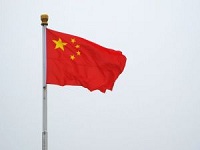 A Chinese drugmaker that has a joint venture with Pfizer ($PFE) to produce generic drugs and plans to separately make biosimilars, has been savaged by the FDA in a warning letter for serious data manipulation and shipping to the U.S. products that repeatedly failed follow-up testing by customers.
A Chinese drugmaker that has a joint venture with Pfizer ($PFE) to produce generic drugs and plans to separately make biosimilars, has been savaged by the FDA in a warning letter for serious data manipulation and shipping to the U.S. products that repeatedly failed follow-up testing by customers.
A warning letter posted by the FDA today shows why the agency last September decided to ban products coming out of the Zhejiang Hisun Pharmaceutical plant in Taizhou City. "We observed systemic data manipulation across your facility, including actions taken by multiple analysts, on multiple pieces of testing equipment, and for multiple drugs," the FDA said in its warning that followed an inspection in March 2015.
It said its concerns over data manipulation were "heightened by the significant number of customer complaints for subpotency and out-of-specification (OOS) impurity levels the company received from 2012-2014." There were more than 60 complaints for impurity problems in the two-year period.
When the FDA looked for the raw test data for those products it found that data had routinely been deleted. It discovered that one analyst had conducted tests on 80 batches after disabling the audit trail on a high performance liquid chromatography (HPLC) computer. The analyst then re-enabled the audit trail, and supposedly again did tests, and then submitted those results. The FDA found other similar cases. The company blamed a "former employee" for messing with the equipment but couldn't come up with any reasonable explanation of why the employee would have done that.
In another instance, an FDA inspector saw an analyst remove a USB thumb drive from a computer controlling an HPLC. When asked to provide the drive, the analyst instead just left the room with the thumb drive. About 15 minutes later, the FDA said a plant official provided the investigator "with what they asserted was the USB thumb drive in question," but that there was no way of knowing if it was the original drive.
The FDA said some customers also complained about microbial results that were out of spec when they tested the company's APIs upon receiving them. When the FDA dug deeper, it found in one incubator 14 media plates that were dried and cracked.
The FDA said the explanations that Zhejiang Hisun Pharmaceutical gave for why data was deleted and raw data was no longer available were completely inadequate, as were the responses to other issues. It said it will continue to prevent the company's products from coming into the U.S. until the agency is satisfied with the steps the drugmaker has taken to bring up its manufacturing standards and can convince the FDA that its test data is authentic.
According to the import alert, the FDA banned 15 products but excluded the tuberculosis treatment capreomycin and 13 others. The Chinese company claimed at the time it has the ability to deal with the issues and was communicating with the FDA about how it will quickly resolve its concerns. It did say the problems would trim about RMB 72.4 million ($11.36 million) off its fourth-quarter sales this year.
Hisun in 2012 hooked up with Pfizer in a joint venture to make and sell in China some of Pfizer's off-patent drugs. Pfizer got 49% of the JV and Hisun the rest.
Neha Wadhwa of Pfizer global media relations, said in an email that none of of the products manufactured by the Hisun Pfizer Joint venture were included in the imort alert. "There is no known impact to the quality of Pfizer products as a result. We place the utmost emphasis on patient safety and product quality at every step in the manufacturing and supply chain process."
Hisun has branched out since then. In 2013, it struck a deal to get Catalent's ($CTLT) GPEx platform for the creation of mammalian cell lines, which Hisun intends to use to develop and manufacture biosimilars of drugs such as Johnson & Johnson's ($JNJ) Remicade, AbbVie's ($ABBV) Humira and Sanofi's ($SNY) Lemtrada.
Because the majority of APIs are now manufactured in China, regulators in the U.S. and Europe have been putting special emphasis on the plants there. The warning letter comes even as the European Medicines Agency (EMA) recently posted its own document outlining problems at a Shaoxing Pharmaceuticals plant in the Paojiang Industrial Zone. Data integrity issues figured into its shortcomings as well.
- here's the warning letter
- see the FDA import alert